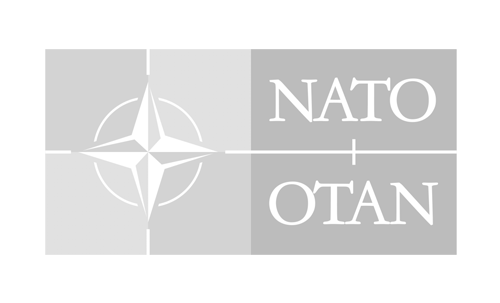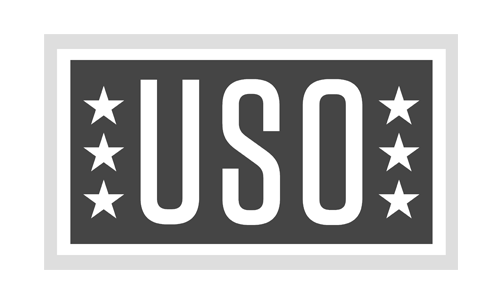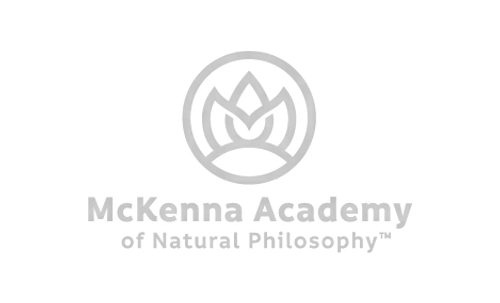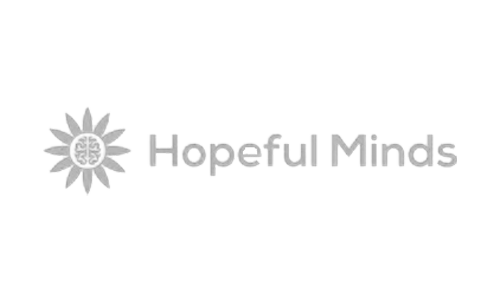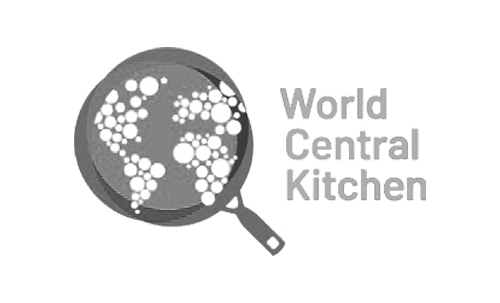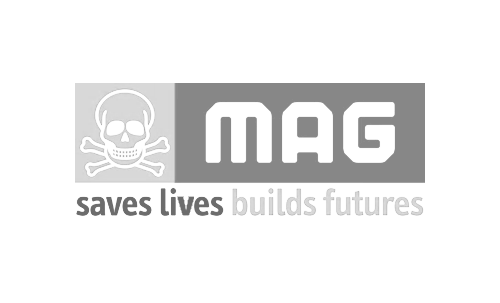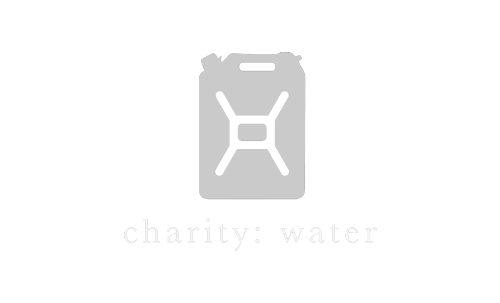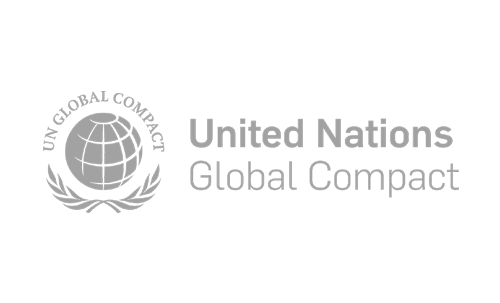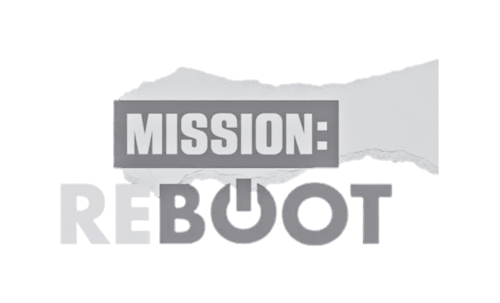APPS
APPS


The Hope Matrix explores the science, stories, and strategies of hope with guest experts in science and activism. Podcast host, Kathryn Goetzke, is dedicated to helping listeners develop the skills needed to create, maintain, and grow hope in their lives. As the author of The Biggest Little Book About Hope and Creator of Hopeful Minds, a free global program that teaches hope as a skill to children around the world, Kathryn has committed her life to helping to support others in the treatment of mental health and teaching prevention methods through lifestyle modifications and education.
Find out more about Kathryn and the projects she is passionate about at www.kathryngoetzke.com
Tags: The Hope Matrix, The Mood Factory, Hopeful Minds, iFred
In this week’s podcast, The Hope Matrix interviews Matthew W. Gallagher, Ph.D., the Associate Professor of Clinical Psychology at the Texas Institute of Measurement, Evaluation, and Statistics at the University of Houston. He has studied the impact of hope on all life outcomes and is currently researching how to assess and promote hope across individuals of all backgrounds. In this episode, Kathryn and Matthew discuss the importance of hope in the context of current events and examine how an education in hope skills at an early age can positively influence future successes.
This week's episode follows Martin Rafferty, Executive Director of Youth Era, who discusses how youth are stepping up and creating change. Youth Era is a national non-profit that is revolutionizing how we view youth engagement; an organization which came out of the chaos of Rafferty's childhood marked by domestic violence, abuse, and neglect. At the age of 12, Rafferty came home to find a note on the door from his mother that read, "this isn't your home anymore." By 22, Rafferty had dramatically changed his life; not only had he been adopted and moved across the country, but he also launched Youth MOVE Oregon (the predecessor of Youth Era) based on his own experience accessing services as a homeless/foster youth. Rafferty and his team at Youth Era have taken their experience nationwide to provide technical assistance and training to over 26,000 people in 24 states. They specialize in training in the areas of peer support, positive youth development, prevention, and postvention for crises, including youth suicide and school shootings. For his resilience and accomplishments, The Bill and Melinda Gates Foundation Discovery Center highlighted Martin Rafferty as one of eight global changemakers.
This week we have the honor of meeting with guest, Mandy Bird. Mandy has been a Licensed Professional Counselor for almost 30 years, delivering hope and heart-centered therapy for individuals, couples, and families struggling with depression, anxiety, grief, and trauma. Considering current events, Mandy offers both in person and virtual therapy sessions. Mandy is also the host of the podcast Finding Hope, where guests share stories of loss, growth, joy, and leadership. In this week’s episode, Mandy and Kathryn discuss grief, and the importance of bringing dignity back to the process of grieving. Mandy provides valuable insights into the importance of delving into the feelings associated with your grief, finding a positive support network, and embracing the things you learn about yourself during the grieving process. Kathryn and Mandy share their own stories and discuss how hope can help lead us through our grief and into a more positive mindset on the other side. For more information about the important work that Mandy is doing
This week’s special guest is Jamie Kelly, Strategic Advisor and Vice President Omnichannel for Isomr Group. Jamie is a mom of two brilliant, dyslexic children (Landon and Camryn), and a founder of Support Dyslexia. In addition to her successful career in retail merchandising, product content development, and digital shelf management, she has dedicated her life to raising awareness about dyslexia, and helping parents, educators, and children connect with dyslexia resources. Jamie and host, Kathryn Goetz discuss the challenges that children with dyslexia face, and how these hardships can lead to helplessness and despair. Jamie provides valuable insight into the creative outlets that students with dyslexia can use to remain hopeful, and the skills that children and parents can focus on to help them achieve their dreams.
This week’s episode interviews Sandy Marshall, founder, CEO, and visionary of Project Scientist, a national nonprofit that turns girls age 4 to 12 onto science, technology, engineering, and math (STEM). She is passionate about igniting girls’ confidence that a STEM career is obtainable for any girl. Sandy and Kathryn discuss how to use hope tools to inspire young girls to aspire to careers in STEM. From the importance of female role models and support networks, to understanding how to handle failure, to using negative emotions to energize positive feelings and inspired actions, Kathryn and Sandy chat about the complex obstacles that young women in STEM face from an early age and identify how a hopeful mindset can help women overcome them.
This week’s special guest on the Hope Matrix is Taylor Steed. Taylor is the author of the Hopeful Minds Overview and Hopeful Minds Deep Dive Educator Guides, as well as many of the Hopeful Minds and iFred resources for parents, educators, and children. In this week’s episode, Taylor and Kathryn discuss the importance of hope in the classroom, and how Hopeful Minds is striving to make hope “cool” for kids. They reflect on their favorite aspects of the new curriculums and reveal how current events have inspired the organization to make both classroom and remote-learning environments more adaptive.
This week we meet for an interview with Dr. Raouf Gharbo, a Physical Medicine & Rehabilitation Specialist, and HRV Subject Matter Expert for pragmatic solutions. He has over 20 years of experience using hope methodologies to address chronic pain. In this week’s episode, Kathryn and Dr. Gharbo discuss the benefit of using hope skillsets to help foster resilience against the pain, hopelessness, and fatigue associated with chronic pain. Dr. Gharbo shares how Stress Skills, such as deep breathing and mindfulness, can help people with chronic pain release the energy associated with their worries about the future and focus on maintaining a trusting and hopeful mindset. He also addresses how Happy Habits, such as purpose and passion, can positively impact long term health, happiness, and physical success.
This week’s special guest on the Hope Matrix is Neli Vazquez Rowland. Neli is the Co-Founder and President of a Safe Haven (ASH), an award-winning, vertically integrated social and economic development model that rebuilds the lives of individuals impacted by poverty, substance abuse, prison reentry, and homelessness. The ASH model uses a holistic and individualized multi-disciplinary approach to offer addiction treatment, education, healthcare, job training and job placement, and supportive affordable housing development. ASH has served over 10,000 people since 1994 and is currently serving over 5,000 individuals each year. Kathryn and Neli discuss the effect of the pandemic-related lockdowns and layoffs on American homelessness and examine the helplessness and despair (the two ingredients of hopelessness) that many homeless Americans experience and how hope tools, such as Stress Skills, can be useful for these individuals to rebuild critical-thinking mindsets.
This week’s special guest is Lian Zeitz, Co-Founder and Global Director of Love and Compassion for Youth RISE, a company mobilizing youth to be engaged in full spectrum harm reduction and drug policy reform to promote health and human rights. Lian has also worked as the Director of Youth Engagement and Advocacy for Cities RISE. In this week’s episode, Kathryn and Lian explore the complex relationship between hope and spirituality and examine the importance of spirituality in adolescent mental health. Lian shares his own journey as a “mental health groupie,” and explains how his experiences within the system sparked a lifelong passion for global mental health advocacy. To learn more about Lian’s work, visit Youth RISE and Cities RISE.
This week’s guest interview is with Tarun Galagali. Tarun is a Mental Health Advocate and the Director of Business Strategy & Operations at Talkspace. He is currently heading the Talkspace and Hopeful Cities initiative in Reno, which is providing free, unlimited messaging therapy to all Reno residents. Talkspace was founded eight years ago with the goal to provide more people with convenient access to licensed therapists around the clock by ulitizing efficient scheduling tools and unlimited access to therapists via text message, audio message, and online chat rooms. Tarun and Kathryn discuss the therapy, mental health and wellness resources offered on the Talkspace app, and analyze the negative reputation sometimes associated with therapy. Tarun and Kathryn open up about their own mental health journeys and reveal the benefits that you can gain from having a therapist at your disposal.
This week’s special guest on the Hope Matrix podcast is Shamash Alidina. Shamash has been practicing mindfulness since 1998 and runs an international mindfulness teacher training organization. He is the international bestselling author of Mindfulness for Dummies, The Mindful Way through Stress and 7 other books. He is currently also passionate about offering daily virtual meditation classes to create a global mindfulness community for practitioners during the pandemic to bring hope for a brighter future. Mindfulness, or the act of being present, is an important hope skill that can increase happiness and decrease stress and anxiety. With the Five Keys to Hope as their guide, Kathryn and Shamash examine how the components of mindfulness - kindness, curiosity, acceptance, and stepping back to view the larger picture - can dramatically affect hope, happiness, and health. Shamash gives us a glimpse into his live mindfulness classes by leading Kathryn and listeners in a two-minute introductory session.
This week’s special guest on the Hope Matrix is Luis Gallardo. Luis is a social innovator and entrepreneur who is dedicated to increasing awareness on the science of happiness, holistic education, and smart innovation. Luis is the Founder of World Happiness Fest, author of The Exponentials of Happiness, and the President of the World Happiness Foundation. The episode explores the connection between happiness and hope. Luis explains how Eastern wisdom and Western science are giving a holistic solution to hopelessness and discusses the many ways in which we can manage our stress response and return to a more hopeful, happy mindset in times of trouble. Kathryn and Luis additionally discuss the power of contemplation and meditation, and the benefits that these acts of active surrender have on our wellbeing.
This week’s episode is with guest, Dr. Zachary (Zack) Burton, Co-Founder of The Manic Monologues, a play and film series honoring true stories of mental health and illness to disrupt stigma. The Manic Monologues has drawn accolades from NPR, The Washington Post, Broadway World, Modern Healthcare, and others. Kathryn and Zack address the stigma and feelings of hopelessness sometimes associated with mental health conditions. Zack opens up about living with bipolar disorder and shares the hope tools that help him to minimize triggers and manage stress responses. Dr. Burton also shares the motivation and inspiration behind The Manic Monologues, a creative outbreak following a psychotic episode he encountered in 2017. The Manic Monologues uses twenty stories to represent the diverse experiences of living with mental health conditions, and strives to find stories of hope amidst the obstacles.
This week’s guest on the Hope Matrix is Charlene Sunkel. Charlene was diagnosed with schizophrenia in 1991 and her journey since then has exposed her to the challenges experienced by individuals with mental disorders within and outside of the mental health sector. Her condition encouraged her to commit herself to fighting the cause for mental health and human rights. Charlene is the Founder and CEO of the Global Mental Health Peer Network and serves on several international boards and committees including the South African Presidential Working Group on Disability and Ministerial Advisory Committee on Mental Health. Charlene examines her lived experiences and evaluates the unique hope skills that helped her through feelings of being alone, facing stigmas and overcoming the unique challenges associated with her condition.
In this episode, we meet with guest, Abbey Johnson. Abbey is the Founder of Live Without Apologies, an organization created to inspire people to live life unapologetically, without judgment or validation from others. She had the idea for Live Without Apologies for over five years, however perfection paralysis prevented her from acting on it. Everything changed in October 2020 when Abbey freed herself from the self-induced and perceived societal pressures of perfection by quitting her dream job after battling depression, anxiety and feeling a lost sense of identity. What followed was a period of stillness, reflection and listening to God which allowed Abbey to rest, re-center, and rediscover her voice. Kathryn and Abbey discuss how life experiences, such as breakups, loss of identity, new jobs, and the pandemic can impact both hope levels and the personal journey.
This week’s special guest is Matthew Jackman. Matthew lives with Bipolar Affective Disorder and Complex Post Traumatic Stress Disorder (defined by DSM/Psychiatry), is a sibling caregiver to his younger brother and sister who live with enduring psychosocial diverse abilities, and has lost his mother to suicide, and consequently his grandparents due to stigma. His experiences of distress, trauma and service drive his passion for global social change in mental health. He is a global mental health advocate promoting human rights, social justice and lived experience as an academic science from public health and MAD STUDIES disciplines, which challenge the epistemological primacy of biomedicine in representing and informing global mental health. Through the Australian Centre for Lived Experience (TACFLE), Matthew aims to expand the literacy around mental health to include and prioritize lived experience as a vital source of knowledge. Matthew is proudly neurodiverse and Queer, utilizing his intersectional experiences of oppression to give a voice to those suffering in silence and achieve equitable social justice.
In this week’s episode, we meet for a discussion with the young Malia Pruyn. Malia shares her struggles with mental health throughout high school, leading into college. Inspired by her experiences and personal journey, she now works with iFred to help facilitate Hopeful Mindsets on her college campus. To her, the keys to mental healthcare are the preventative tools that hope teaches. Kathryn and Malia go into a deeper discussion about the implications of hope in their communities, both on and off campus. The importance of having support and lessons that teach hope skills on college campuses is clearly impactful, Malia explains, and expresses the importance of college campuses providing adequate student resources.
This week’s interview guest is Max Hennessy. Max grew up in Norfolk, Virginia and graduated from UVA’s College of Arts and Science with a degree in Religious Studies. With an entrepreneurial spirit from an early age, Max started his first side hustle at 14 years old, reselling vintage video games throughout high school. He later created his first company, Icy Threads LLC, where he dropped movie and TV show jerseys to a niche audience across the US. In 2018, he created TMH Business Solutions, a web design and social media marketing company for small businesses and non-profits, which he is still running today. He expresses his thoughts on finding ways to start achievable goals and how different relationships and resources provide support to those who are feeling despair or helpless. Max also speaks on how gratitude has allowed him to realize the importance of reaching out regularly to loved ones and making the effort to be kind and generous in every situation and to every person you encounter.
On this week’s episode, host Kathryn Goetzke meets with Craig Kramer, and his children Katharine and Peter Lee-Kramer explore the importance of hope and hope skills within a family dynamic. Craig Kramer currently serves as the Mental Health Ambassador, and Chair of the Global Campaign on Mental Health, for Johnson and Johnson. He has traveled the world in pursuit of mental health advocacy, programming, and the continued expansion of initiatives focused on spaces that address mental health. Peter, Craig’s son, is currently attending the Doctor of Psychology program at the University of Denver and has been a vocal advocate for mental health. Katharine is completing her master’s degree in Social Work while interning at a psychiatric hospital. The Lee-Kramer family discuss their personal and professional experiences with mental health, leading a positive example for how family connections can be strengthened by recognizing one-another's flaws, emphasizing transparency, and maintaining nonjudgmental relationships. The Lee-Kramer's share the tools and ways in which they each of them help to acknowledge and implement hope skills in their family dynamic as a whole.
In this episode, we evaluate a true story of hopelessness to hope with podcast guest, Grant Denton. Denton’s past is one of addiction and trauma, as he struggled with an addiction to heroin and crystal meth, marrying and divorcing twice, all while raising two sons. Because of his addiction, he lost his job and his family, intermittently living on the street when he was then arrested on burglary charges that could have sent him to prison for five to seven years. The judge gave him a choice: enter drug court and rehab or go to prison; he chose the path of a better life. He moved to Reno for a fresh start as a sober man where he worked in a homeless shelter, for the Downtown Reno Business Improvement District, and in an addiction treatment center, where he formed a crew of community volunteers that lead to the Karma Box Project. Today, Karma Box has grown from its namesake mission to become an umbrella organization that “partners with homeless people, meeting them where they are.” This partnership ranges from safe restrooms to counselors in emergency rooms, from secure and sanitary tent communities to helping people obtain identification documents so they can access social services on their journey from homelessness. Coming from a place of such extreme hopelessness, Grant came into a new place where he activates hope in those same communities from which he once existed.
With an undeniable, unique perspective on hope, this week’s episode features Luis Gallardo for his second appearance on The Hope Matrix. Luis is a social innovator and entrepreneur with the higher purpose of elevating the vibration of the planet by developing ideas, connecting thought leaders, activists, and communities, and increasing awareness on the science of happiness, holistic education, and smart innovation. For Luis, happiness is a human right and a life choice; an enabler of human development and social innovation. Luis Gallardo shares the importance of contemplation as a stress skill to remain in a place where happiness and hopefulness are abundant, providing insight into staying calm and collected. Luis is a true innovator with philosophical perspectives, for a conversation providing great wisdom on the relationship between hope and happiness.
Kathryn Goetzke is an entrepreneur, strategic consultant, and global depression advocate. She was recently appointed to be a representative at the United Nations for the World Federation for Mental Health. She is the entrepreneur and innovator behind Mood-lites™, a brand that achieved over 35 million dollars in retail sales. Through her strategic consulting with Innovative Analysis, LLC, Ms. Goetzke created Hopeful Mindsets, an evidence-based course to activate hope on college campuses, along with a marketing campaign working to activate students on the ‘why’ of hope. She is the author of The Biggest Little Book About Hope, and host of The Hope Matrix podcast.
Ms. Goetzke is the Founder of iFred, a nonprofit organization dedicated to shining a positive light on mental health and eliminating stigma through prevention, research, and education. She is also the creator and founder of Hopeful Minds, a program to teach hope to kids based on research that hope is a teachable skill, and Hopeful Cities, a marketing plan that operationalizes hope in cities around the world.
Kathryn and her work have been featured in Entrepreneur Magazine, Home, InStyle, Family Living, Scholastic Choices Magazine, and others. She has spoken at the United Nations, the Global Mental Health Movement Conference in Athens and South Africa, at Mental Health Community Associations Conference, The Kennedy Forum, The World Bank, the Scent Marketing Institute, and more. She has been featured on multiple radio and television shows including BBC, WGN Chicago, CBS Chicago, Tasty Trade, and eWomenNetwork. Ms. Goetzke serves on advisory boards for FundaMentalSDG, Y Mental Health, Women’s Brain Project, and the Global Mental Health Movement.

